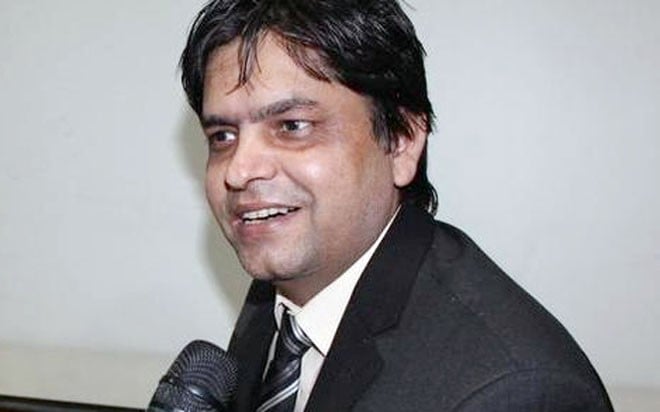
Afzal Saahir, broadcaster, producer programmes, and Punjabi activist shares his experiences of doing a radio programme in Punjabi language

You could not have possibly missed Afzal Saahir on your radio sets if you are conversant with Punjabi language. His is too powerful and unique a voice -- a rare combination of wit, refinement, an enlightened worldview and most of all a true flavour of language.
It is a surprise when he tells you he has been on the radio scene since 2005 -- a comment on how far the FM radio has travelled in this country. As Saahir continues to bring smiles on people’s lips with his ready humour, what leaves one perplexed is the ease with which he utters all those radical and progressive thoughts.
Is it because these are spoken in Punjabi and the regional languages are not as easily censored as perhaps Urdu. Saahir says he was not as lucky while two-timing for FM 95, which was a state-owned channel. "A chit would come in the middle of the programme or after, and that is why I left it, actually in the middle of a programme," he says. On the contrary, he has absolute editorial freedom in his programmes at FM 103 where he brings together "pro-people thought, arts, culture, literature, social sciences, including philosophy".
His listenership is to the tune of millions of people because the programmes are run in four stations together -- Lahore, Karachi, Faisalabad and Multan. And then there is online streaming that attracts listeners in what he calls the third Punjab -- UK, US, Canada and now Australia. "People listen to radio sitting in their cars, shops, on their cell phones and in kitchens. Because on radio you do not have to stay visually engaged like on tv. FM has revived this medium which is broadcast 24 hours and without any distortion."
Afzal Saahir is an accidental broadcaster and we are lucky to have him in our midst. But he acknowledges the new FM radio producers as well as presenters have no vision. "They do not believe in training of any kind; the language and pronunciation obviously take a backseat. They have no comparative study or specialised field of interest, even if they come with a background in journalism," he says.
In a situation where the presenter is the producer too, we cannot hope much for script or research or content, he says. "It is ironic that you think so hard when you have to speak to 500 people in a hall. But here the presenters are speaking to millions of people without a thought in their minds" is how he sums it up.
Related article: "Every morning, I feel I have a responsibility," says RJ Khalid Malik